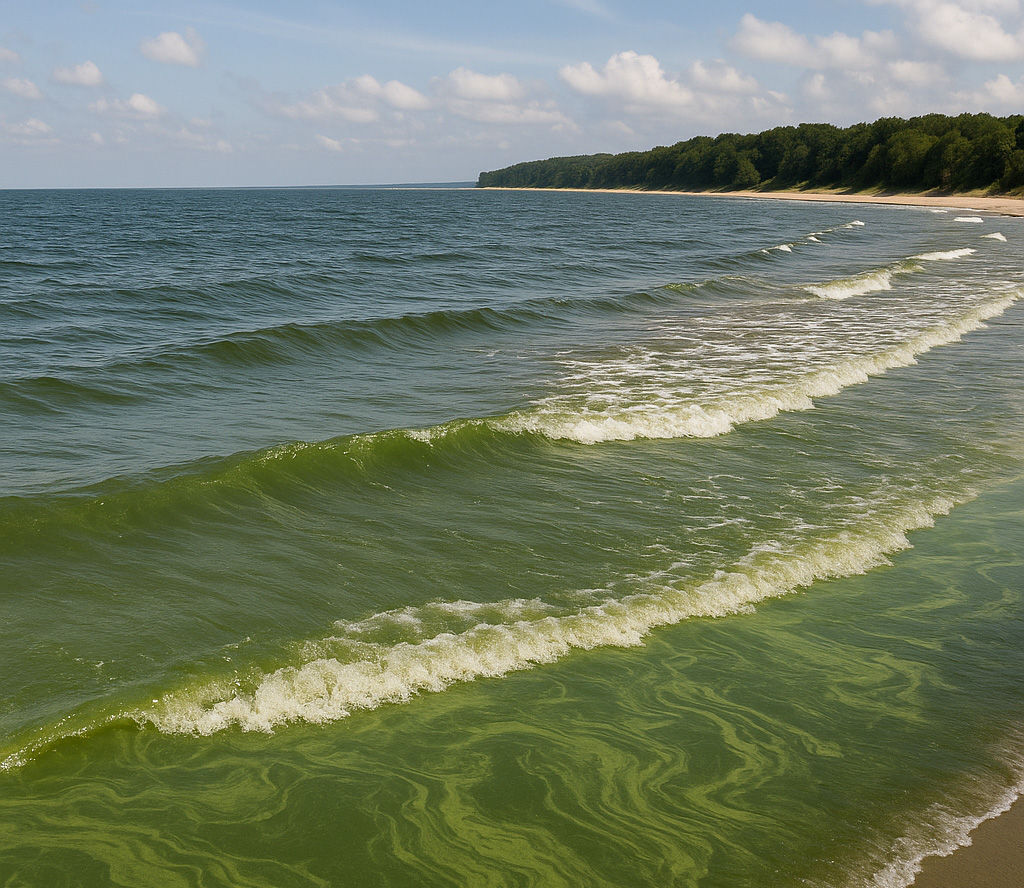DEGRADATION OF THE BALTIC SEA WATERS THROUGH THE NEGATIVE IMPACT OF DOMESTIC WASTEWATER TREATMENT PLANTS AND AGRICULTURAL PRODUCTION
In this study, I would like to refer only to a few types of pollutants that have a direct impact on the biodegradation of the Baltic Sea waters. They are introduced into the natural environment by domestic wastewater treatment plants, large-scale animal farming, and the agri-food industry. This comparison is justified since the pollutants discharged into surface waters share a common origin. Wastewater discharged directly into rivers in the Pomeranian region is the main factor contributing to the degradation of the Baltic Sea waters. Often, this is due to the negligence and irresponsibility of those responsible for treatment efficiency, but not infrequently it is also deliberate action motivated by economic reasons. The simplest way to “get rid of the problem” is to “dump it at night” and forget about it. The growing ecological consequences are now difficult to predict, and that is why legal regulations should enforce compliance with technological processes and make any circumvention of regulations unprofitable. At the same time, the utmost care must be taken in selecting water treatment technologies for discharges into the environment, opting for the most effective—even if not always the cheapest.
Such technologies have been developed by the Polish company BLUE TECH WATER Sp. z o.o., however, their implementation in practice faces incredible difficulties due to the particular expectations of decision-makers and constant attempts by potential clients to appropriate the technology.
Polishing of discharge waters
In the process of polishing domestic wastewater, biogenic compounds are captured, keeping the parameters of discharge waters below permissible standards. In practice, discharge waters contain significant amounts of nitrogen and phosphorus compounds. After numerous trials, the effectiveness of the discharge water polishing process has been confirmed in laboratory tests. We carry out the wastewater polishing process continuously—without storage or mixing of wastewater, without adding chemical preparations or solutions—making the process simple and economical. The responsibility for managing technological waste lies with the service company. The units operate automatically and do not require constant supervision, apart from standard servicing. They occupy very little space, and no additional technical infrastructure is required. Only access to electricity and a telephone line (for continuous monitoring) is needed.

Fish farming
In fish farming, the most important factor is the stability of the aquatic environment. Maintaining water parameters is a guarantee of farming efficiency and product quality. In most farms, ponds are continuously supplied with fresh water while contaminated water is discharged into the surrounding environment. Wastewater from fish farming carries a very high pollutant load. In rearing tanks, virtually nothing reduces the contaminants—water undergoes constant degradation due to the metabolic by-products of the organisms living in it. Typically, such wastewater is discharged directly into rivers or lakes. We provide a water filtration system that enables closed-loop operation, resulting in significant water savings and automatic wastewater control. This system can also be applied to treat discharged wastewater. Such results are only possible with unique water filtration systems. The filtration process is carried out continuously. Biogenic compounds (nitrates NO₃, nitrites NO₂, phosphates PO₄), organic substances dissolved in water, solid impurities, as well as ammonia and carbon dioxide, are removed. The water circulates in a closed loop. All processes are automatically controlled.
The system has proven effective even in such extreme conditions as tanks with piranhas at the Warsaw Zoological Garden.
A pilot investment has made it possible to demonstrate what can be shown at any time on a semi-technical scale. It is possible to address both local problems and their accumulation in the waters of the Baltic Sea.



